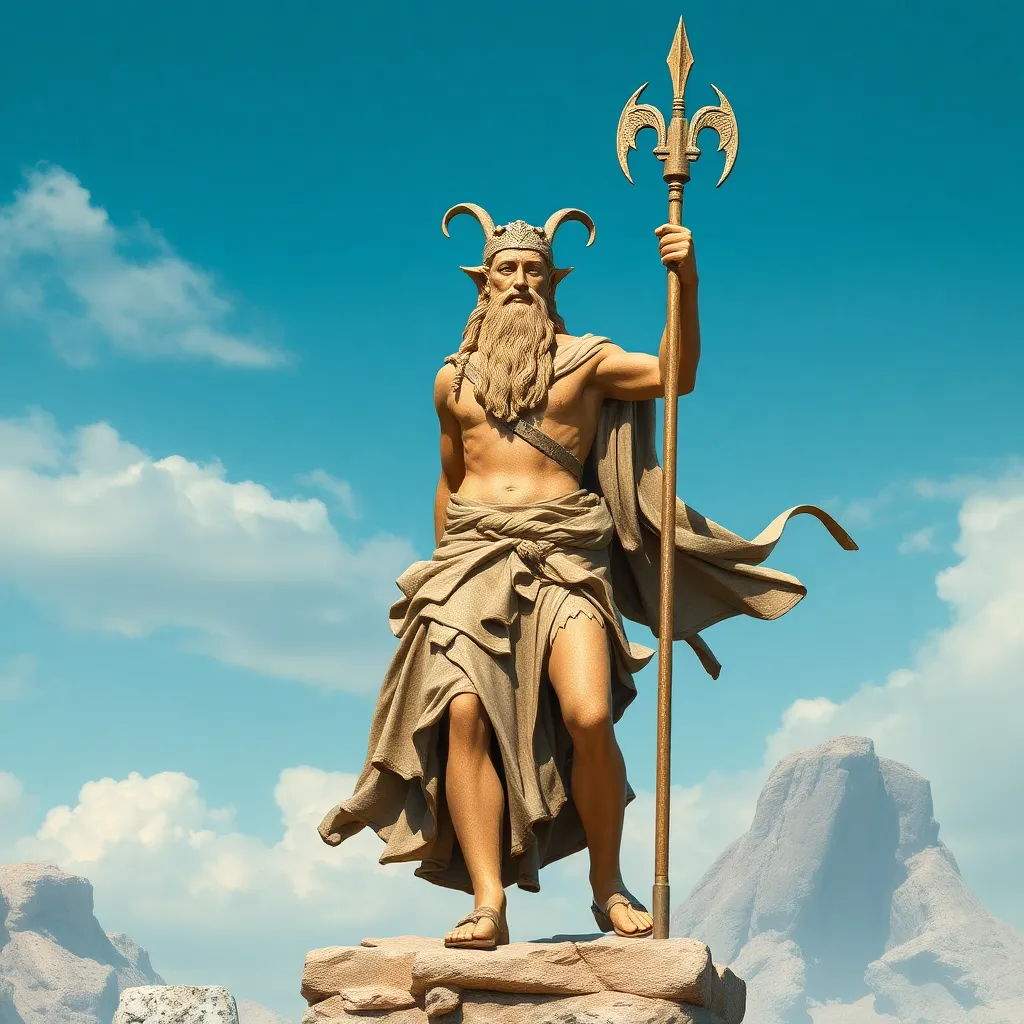The Role of Mythology in The Iliad: Blending History and Legend
I. Introduction
The Iliad, attributed to the ancient Greek poet Homer, is a cornerstone of Western literature that chronicles the events of the Trojan War. This epic poem not only serves as a historical narrative but also intertwines rich mythological elements that deepen its significance. The interplay between mythology and history in ancient texts like The Iliad creates a complex tapestry that reflects the beliefs, values, and cultural practices of the time. In this article, we will explore how mythology enhances the narrative of The Iliad, offering insights into its characters, themes, and cultural impact.
II. Historical Context of The Iliad
To understand the role of mythology in The Iliad, it is essential to grasp the historical context surrounding the Trojan War. The Trojan War is believed to have taken place in the late Bronze Age, around the 12th century BCE, although its exact historical basis remains a subject of debate among scholars.
The Iliad depicts a long, drawn-out conflict between the city of Troy and the Greek forces, sparked by the abduction of Helen, the wife of Menelaus, by Paris, a Trojan prince. While historical evidence of such a war is scarce, archaeological findings at the site of ancient Troy suggest that a significant conflict may have occurred.
Oral tradition played a pivotal role in preserving these historical narratives. Before being transcribed, stories of the Trojan War were passed down through generations, evolving and incorporating mythological elements that shaped the characters and events into a grand narrative.
III. Major Mythological Figures in The Iliad
The Iliad is populated by a multitude of mythological figures, including gods, goddesses, and legendary heroes. Some of the key figures include:
- Zeus: The king of the gods, who often intervenes in mortal affairs.
- Athena: The goddess of wisdom and war, who supports the Greeks.
- Achilles: The mightiest Greek warrior, whose rage is central to the plot.
The influence of divine beings on human actions and decisions is a recurring theme in The Iliad. Gods take sides in the conflict, guiding and manipulating the fates of the characters. For example, Athena inspires Achilles to return to battle, while Hera seeks to protect the Greeks from the wrath of Zeus.
The interactions between mortals and immortals are integral to the narrative, highlighting the tension between fate and free will. Characters often find their choices influenced by divine interventions, blurring the lines between human agency and predetermined destiny.
IV. The Function of Mythology in Character Development
Mythology significantly shapes character development in The Iliad. Many heroes boast divine ancestry, enhancing their status and expectations. For instance, Achilles is the son of the goddess Thetis, which imbues him with extraordinary abilities and a tragic fate.
Myths also shape the personalities and motivations of the characters. Achilles’ rage stems from a perceived slight by Agamemnon, which is echoed in the myth of his fateful choice between a long life of obscurity and a short, glorious existence. The exploration of fate versus free will is prevalent, as characters struggle with their desires in light of divine prophecy.
V. Mythology as a Narrative Device
The use of mythology in The Iliad serves as a powerful narrative device. Myths often foreshadow events and outcomes, providing readers with a deeper understanding of the characters’ journeys. For example, prophecies about Achilles’ fate permeate the text, creating an atmosphere of inevitable tragedy.
Symbolism and allegory abound in mythological references throughout the poem. The gods are not merely figures of worship but also represent various aspects of human experience, such as love, war, wisdom, and vengeance. The structure of The Iliad itself is influenced by these mythological themes, which contribute to its overarching narrative arc.
VI. The Cultural Significance of Mythology in Ancient Greece
Mythology played a crucial role in shaping Greek identity and values. The tales of gods and heroes were not just entertainment but also imparted moral lessons and cultural ideals. Myths reflected societal beliefs and ethics, emphasizing virtues such as bravery, honor, and loyalty.
Additionally, mythology served an educational purpose in ancient Greek culture. It provided a shared narrative framework that helped individuals understand their place in the world and the complexities of human nature. Through the lens of mythology, the Greeks explored fundamental questions about existence, morality, and the divine.
VII. The Legacy of Mythology in The Iliad
The influence of mythology in The Iliad extends far beyond its original context. The themes and characters have resonated through the ages, inspiring countless literary works and adaptations. From ancient dramas to modern novels, the legacy of The Iliad’s mythological elements remains evident.
Contemporary storytelling continues to draw upon the themes of heroism, fate, and the divine, showcasing the enduring relevance of mythological motifs. The fascination with myth persists, as audiences are captivated by the timeless struggles between mortals and gods, love and war, and fate and free will.
VIII. Conclusion
In conclusion, mythology plays a vital role in The Iliad, enriching the narrative and offering profound insights into the human experience. The interplay of history and legend provides a lens through which we can explore the complexities of life, honor, and destiny. As we reflect on the lasting impact of The Iliad and its mythological elements, we are reminded of the power of stories to shape culture, identity, and understanding across generations.




